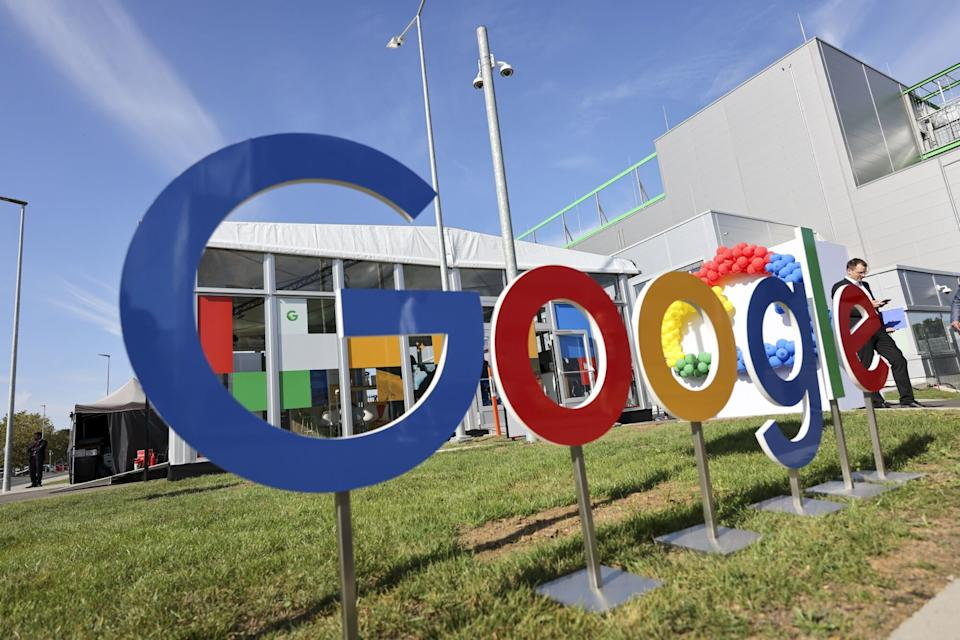In a historic move against Big Tech, the U.S. Department of Justice (DOJ) is now pushing for the breakup of Google’s ad-tech business. This follows a federal judge’s decision that Google has maintained an illegal monopoly over the digital advertising market, hurting fair competition and publishers across the country.

The ruling is part of a long-running antitrust case that could reshape the future of online advertising, where Google currently controls a significant chunk of the market. This legal action is one of the most aggressive antitrust moves made against a tech giant in decades and could mark a major shift in how digital advertising platforms are regulated in the U.S.
What the Judge Said
U.S. District Judge Leonie Brinkema ruled that Google’s ad-tech practices violated antitrust laws by harming competitors, inflating ad prices, and exploiting its dominant market position.
“The evidence shows that Google used anti-competitive tactics to maintain and extend its monopoly in the ad-tech sector,” Judge Brinkema stated. She also noted that Google’s conduct harmed both advertisers and publishers, leading to reduced innovation and higher prices.
Why the U.S. Government Is Taking Action
The DOJ, along with attorneys general from several states, argued that Google’s control over multiple layers of the ad-tech stack — from buying and selling ad space to auctioning it — gave the company unfair power. Critics say this setup is like one company acting as referee, player, and coach in the same game.
Attorney General Merrick Garland remarked, “Google’s dominance in the ad-tech space is not based on merit alone but on unlawful practices designed to eliminate competition. We are seeking structural remedies, including divestiture.”
In simple terms, the government wants to break up Google’s ad business so that it no longer controls every part of the advertising supply chain. That could mean separating its ad-buying tools from the platforms that sell ads or splitting off its DoubleClick unit, which it acquired in 2007.
How Big Is Google in Ad-Tech?
Google’s digital ad empire includes key tools such as Google Ad Manager, Google Ads, and the Display & Video 360 platform. These tools serve advertisers, publishers, and everyone in between. Google also runs ad exchanges where ad space is bought and sold in real-time.
According to Statista, Google earned over $240 billion from advertising in 2023, making it the largest digital ad company in the world. Its closest rivals, Meta and Amazon, are far behind.
This dominance has raised red flags for regulators, especially as smaller ad-tech firms struggle to compete. Many publishers also complain they earn less revenue from ads because of Google’s fees and lack of transparency.
What Happens Next?
The case is expected to move forward with hearings on potential remedies. If the court sides with the DOJ’s demands, Google could be forced to sell parts of its ad-tech business or separate its platforms into independent entities.
This wouldn’t just impact Google. It would change how digital ads work across the internet. Advertisers may gain more options, publishers might earn more money, and smaller ad-tech startups could finally have room to grow.
However, Google is fighting back. The company denies wrongdoing and has said that breaking up its ad-tech business would hurt the free flow of information on the internet.
“We strongly disagree with the DOJ’s claims and will defend our position in court,” said Dan Taylor, Google’s VP of Global Ads. “Our tools help businesses of all sizes reach customers and help websites earn money to fund free content.”
Experts Weigh In
Legal experts believe this case could set a powerful precedent.
“If the court agrees to dismantle Google’s ad-tech structure, it would send a message to all tech companies that dominance without accountability won’t be tolerated,” said Fiona Scott Morton, a professor at Yale School of Management and former DOJ economist.
On the other hand, some tech policy analysts warn that breaking up Google could create new problems like lower efficiency or increased ad prices due to fragmentation.
Still, public sentiment seems to favor tighter control over tech giants. A Pew Research survey from 2024 found that 72% of Americans believe large tech firms have too much power.
The Bigger Picture: Tech Giants Under Fire

This case is part of a broader crackdown on the tech industry. The Federal Trade Commission (FTC) is also suing Amazon over alleged anti-competitive practices. Meta has faced similar scrutiny over its acquisitions of Instagram and WhatsApp. Apple is under investigation for its App Store policies.
Globally, the European Union has already taken several steps against Google, including multi-billion dollar fines and orders to unbundle products. India and Australia have also imposed strict regulations on Big Tech companies.
With this latest move, the U.S. government is signaling that it’s serious about reining in tech monopolies, particularly in digital advertising — a sector that fuels much of the free content on the web.
What This Means for Consumers and Businesses
For consumers, the case could lead to a more open and fair internet, with less control by a few major players. For businesses, especially small publishers and advertisers, it may bring more transparency and better pricing.
It could also change how tech companies approach acquisitions. If the court supports a breakup, Big Tech firms may think twice before swallowing up competitors or expanding vertically.
In the long run, this case might lead to a reshaped internet advertising landscape — one that is more competitive, transparent, and consumer-focused.
Also Read – ‘Swan Lake’ Comes to Vacaville for One Magical Night Only






